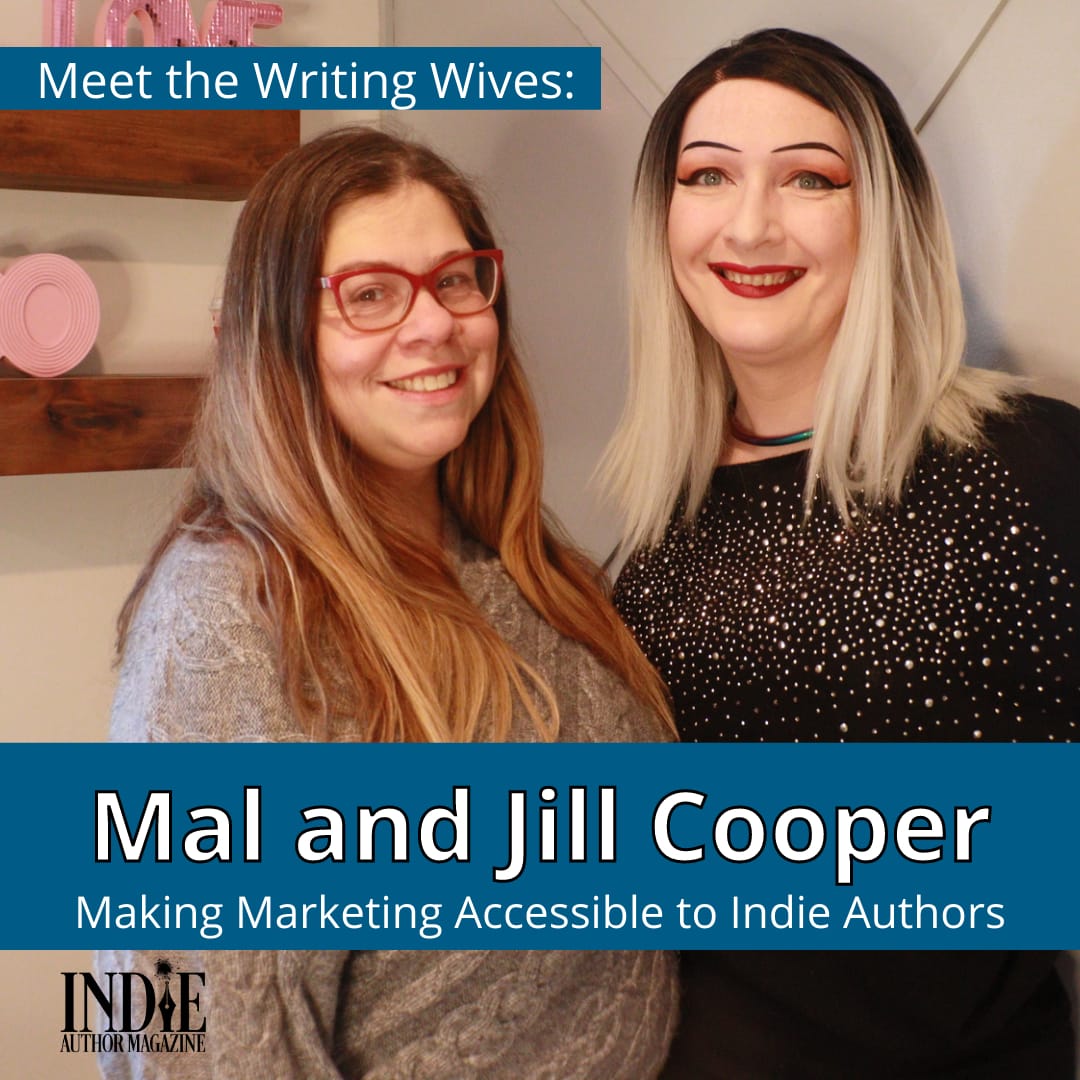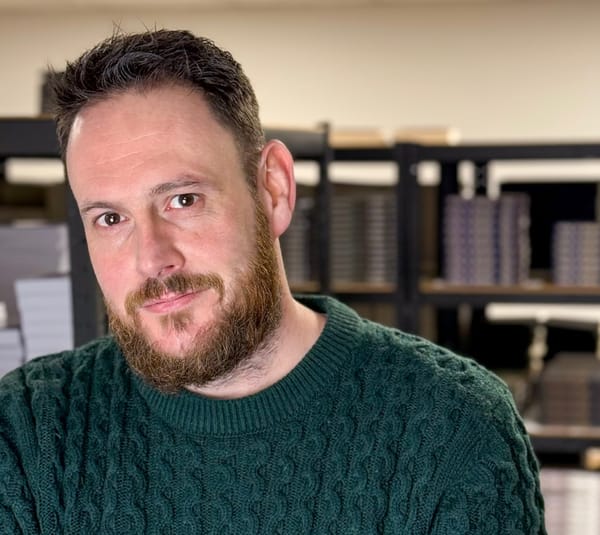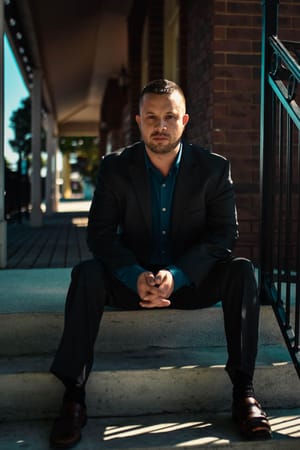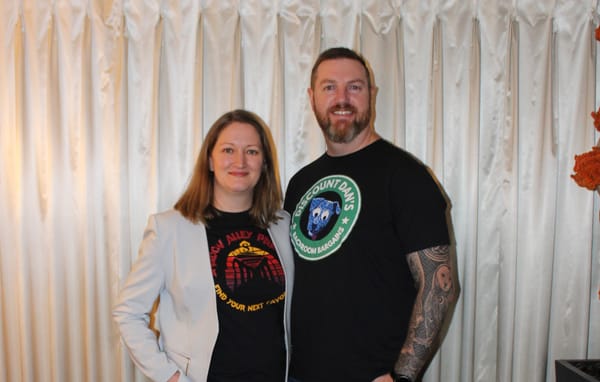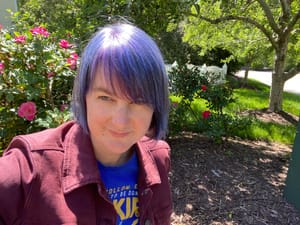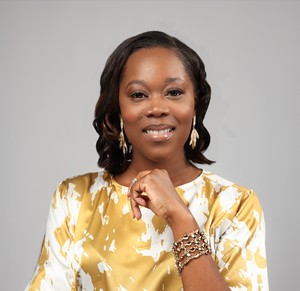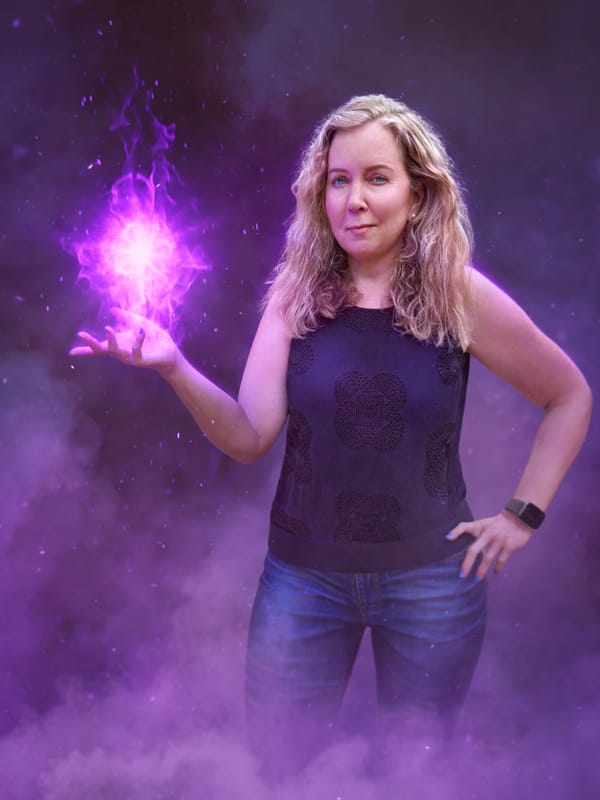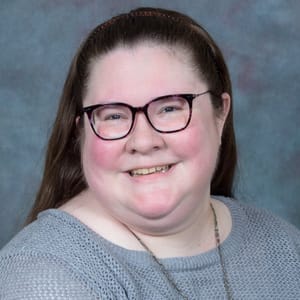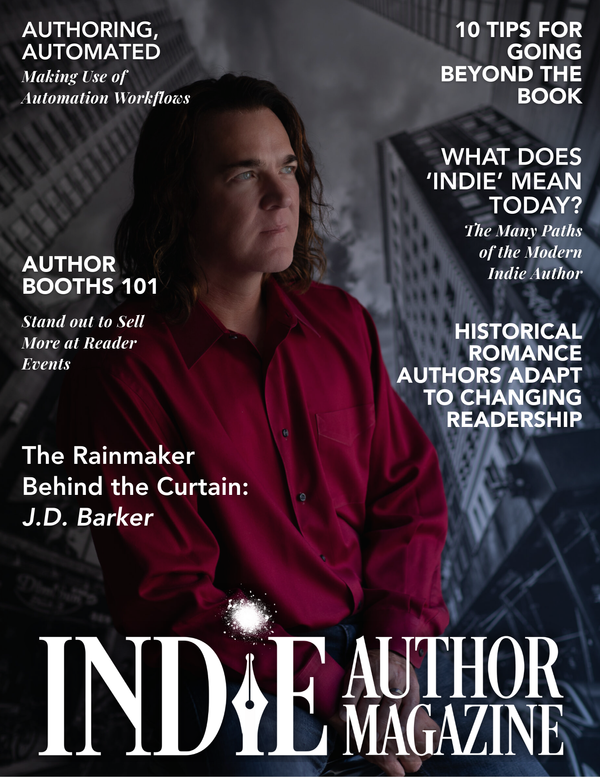As the Writing Wives, Malorie and Jill Cooper Make Marketing Success Accessible to Indie Authors
When asked about the advice they would offer indie authors heading into a new year, Malorie and Jill Cooper start their answers at the same time.
“You go first, Mal,” Jill tells her wife with a laugh.
“I figure we’re probably going to say the same thing, actually,” Malorie says.
In the end, Malorie is right. It doesn’t matter who answers first, or that they’re speaking from separate rooms of their house: Malorie from the sunroom and Jill from the basement. As they have been for much of the interview, the literary couple—both authors themselves and co-founders of the marketing agency The Writing Wives—are on exactly the same page.
For roughly the past five years, Malorie and Jill have offered classes and one-on-one mentorships to authors looking to run Facebook Ads for their businesses after mastering the platform themselves. In addition, the two have written and published more than one hundred fifty books between them since entering the indie author sphere in 2011, earning bestseller monikers from the New York Times and USA TODAY, respectively. For all their eye-opening successes, however, the message of the Writing Wives’ story remains grounded. Ultimately, their careers have been shaped by the idea of finding a balance between writing and real life—and by the desire to support each other, and others in the community, when that balance starts to tip.

Passionate Pursuit
Fittingly, the Writing Wives’ story begins with writing. Malorie and Jill met in a writing chatroom in 1996 and later married. For years, they encouraged each other as they worked to find a traditional publisher for their respective projects.
“Back then, I only wrote passion projects,” Jill says. “I didn’t know anything else. Writing to market wasn’t a thing. You just wrote what you loved.” So when an agent said the manuscript she’d been querying showed promise, she was thrilled—but when he reviewed the project further and turned it down, his rejection stung that much more. “That’s when I saw, on Twitter, some of my friends were publishing. From looking outside, it looked like they were doing really well, and … I was like, ‘I want to do that too.’”
Malorie’s experience with the process was similar—her hope was piqued when an agent requested her full manuscript, then dashed when six months went by without a word. It wasn’t until she reached out for a follow-up that she learned it was another rejection. The two finally made the shift toward independent publishing in 2011, but in a corner of the industry that was just finding its footing, that posed its own challenges. The two had to find editors, learn interior formatting, and hire someone to organize book blog tours to promote their work. In addition, Jill had to find a cover designer for hire; Malorie decided to create her own.
“We didn’t know what we didn’t know,” Malorie says.
As time went on and the community around independent publishing grew, however, Malorie and Jill saw their author careers grow too—thanks, in part, to advertising on Facebook. Malorie’s books sold especially well, and by 2017, they were earning enough for her to transition to writing full time.
“I said to Jill, ‘I’m really inspired right now,’” Malorie says. “‘The sales are really good, but we’ve seen so many authors who started this years ago and just don’t write at all anymore. You know, they had careers and they got burned out, or Amazon changed something, and the way they’re making money stopped working. So let’s make hay while the sun’s up.’” The couple agreed Malorie would take the next year to write as much as she could and develop her backlist, with Jill supporting her.
By the end of 2018, Malorie had published forty-four books—and, as she says, “completely destroyed my desire to write.”
“I was watching you,” Jill says to Malorie. “The words were slowing down, and the inspiration—the well was dry.” By 2020, the couple decided they needed to find a way to give Malorie a chance to rest and recharge. Malorie briefly considered returning to her day job as a software engineer; instead, the wives started offering classes on Facebook Ads for authors.
The Writing Wives
Although the COVID-19 pandemic slowed the couple’s start, as people slowly returned to status quo, the handful of classes the two were hosting grew into a full-time business. Today, the Writing Wives offers a mix of marketing classes at a variety of skill levels and individual consulting, all still focused on Facebook Ads. The process has been a learning experience for more than just its clients.
“I think the biggest struggle that I’ve had myself that Jill's really helped me through is [that] … my biggest fear is failing to teach people and help people,” Malorie says. “At the very beginning, I refused to charge any meaningful amount of money for anything because I figured at least if I’m terrible, they’ll be like, ‘Well, it wasn’t that much.’”
Confidence can be a major drawback for the couple’s students as well, Jill says. Some authors get nervous about investing the money and time in their marketing to see success, and others want to build a marketing campaign for one or two books instead of waiting to build a backlist first. As much as the couple hopes to teach authors how to master Facebook Ads, they also want to support them in the process.
“My mission statement is to make Facebook Ads accessible to all authors,” Jill says. And for all the support they’ve offered indie authors through the Writing Wives, they’ve received just as much support from the community in turn. Around the same time they settled on a name for their business, Malorie came out publicly as transgender. “Ironically, the least accepting part of the community was the genre I write in, which is Science Fiction. And specifically I read Military Science Fiction. So I lost a lot of friends in that group. But at the same time, I made so many more friends in the community,” she says. “I can't think of any community I’ve ever been in that is as open and welcoming as the author community.”

Words of Advice
Looking ahead at 2024, Malorie’s biggest piece of advice for authors—and Jill’s, it turns out—is to pace yourself. “Remember that you also want to have a life,” she says. “Like Jill said, even if you can write five thousand words a day, you can’t write five thousand words a day for 365 days. You’re going to get sick. You’re going to want to spend time with the kids.”
“Don’t run yourself ragged, authors,” Jill says. “Take care of yourself. Be with your family. Learn how to make the most out of what you’ve already written, and use it as more than one revenue stream to relieve some of that pressure so you don’t have to burn yourself out completely.”
At the same time, Jill says, remember that you’re a business owner, and many of the roles you take on as an author require a business mindset—including marketing. Sometimes, success comes from being able to step back from your creative goals and look at them from an outside perspective. “And if you get your spouse on board to be that other person, that can also work in your favor,” she says with a smile.
Nicole Schroeder

